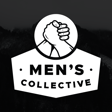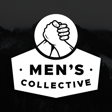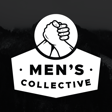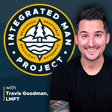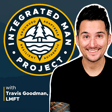
From Silence to Strength: Journey of Healing and Empowerment Through Emotional Vulnerability (feat. Terry Snyder)
***TRIGGER WARNING - THIS EPISODE TALKS ABOUT SUICIDE***
Welcome back to another episode of The Therapy4Dads Podcast. I'm your host, Travis Goodman, and today we have a very powerful and heartfelt episode in store for you. Our guest today is Terry Snyder, who has a remarkable story of personal transformation and the healing power of vulnerability. Terry is a devoted husband to Wendy Snyder and a proud father who believes in the power of a fresh start. Recognizing the positive impact his wife had on their own family, Terry's passion grew to reach families worldwide by promoting peace in their homes. Inspired by a friend's suggestion, they started hosting podcasts together, with Terry specifically aiming to be a voice for fathers, a much-needed perspective in the field. Initially expecting to handle technical aspects, Terry soon discovered the freedom and fulfillment that comes with being on the show. Over the past few years, Terry and Wendy have enjoyed producing numerous episodes and hosting incredible guests, including the reader. Excited and committed to making a difference, they are fully engaged in the game.
In this episode, Terry shares about his childhood home, family of origin, school, and relationships. He opens up about his own journey of self-discovery and the profound impact that a group experience had on his life. Through anonymity and lack of judgment, Terry found the space to be open and vulnerable, leading to a deep realization of their purpose and a desire to help others. He shares his experiences attending weekend courses, finding a therapist, and the importance of confronting and addressing emotions, rather than suppressing them. Additionally, Terry shares his own personal experiences with family dynamics, relationships, and finding one's identity amidst societal expectations. Join us as we delve into Terry's story and uncover the transformative power of healing and growth. Stay tuned, this is an episode you won't want to miss.
WATCH ON YOUTUBE:
SUPPORT THE SHOW:
CLICK HERE: BuyMeACoffee/Therapy4Dads
JOIN the MAILING LIST & GET INVOLVED!
Support and follow Terry
IG: @terrysnydercreative
WEB: https://www.terrysnydercreative.com/
Connect and Support Travis:
YouTube: Travis Goodman
Instagram: @Therapy4Dads
Check out the Website: Therapy4Dads.com
